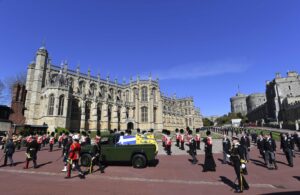Culture Desk
Saturday Afternoon the latest big-screen production from Mostofa Sarwar Farooki has been reviewed by US film activist, festival director Deborah Young. Published on US magazine, The Hollywood Reporter the review hails the film for having a ‘breathless’ narrative and a ‘confident direction’ that keeps the story in focus for the viewers despite technical cinematography. It might be added that the film has been shot in just seven-days in a single take with rehearsals for just eleven days. Deborah watched the film in its recent premiere in the Moscow International Film Festival. In the 41st edition of the festival on April 25 the film bagged two critic awards named ‘Russian Federation Film Critics Jury Award’ and ‘Kommersant Award’. The review lays out the plot almost in its entirety but in such a way that a real film buff would become even more interested in watching it in theatres after perusing down the writeup till the last word.
Inspired by the attack on a Dhaka cafe in July 2016, Bangladeshi filmmaker Mostofa Sarwar Farooki exposes terrorism’s phony religious ideology.
Bangladesh’s most modernist director, writer and producer Mostofa Sarwar Farooki (Television, No Bed of Roses) turns his attention to the fanaticism behind terrorism in Saturday Afternoon (Shonibar Bikel). The film is loosely inspired by the deadly attack on a quiet bakery cafe, where on July 1, 2016 five armed gunmen took the staff and customers hostage, including many foreigners. The final body count was 22 dead plus the terrorists, who were killed by commandos sent in by the army. More than enough drama and tragedy for your typical hostage crisis movie. But Farooki doesn’t do it that way.
Instead, he leaves out the terrorists’ attack on the restaurant where the film is set, beginning the action just after it, when things have momentarily calmed down, and draws the curtains just before the police move in for the final kill. Certainly there is plenty of mayhem and death in the middle, but that is not the point. What he’s interested in is the dialogue that occurs between the men with the guns and their cowering victims; the wild illogic by which the attackers justify their actions, and the moving humanity of the surviving Muslim hostages. The film bowed at the Moscow film festival where it won the Russian Film Critics Award and is already slated for Munich, Sydney and Busan.
Unfortunately, it has been banned in Bangladesh on the grounds it could “damage the country’s reputation” and incite religious hatred. The only thing this Bangladesh-Germany co-prod could do to the country’s reputation is improve it, and its plea for religious tolerance is nothing short of touching.
While the body of the film is shot in a single, excited take, it opens on a series of shots emphasizing the deceptive stillness of Dhaka on a lazy Saturday morning. These quiet images show a city unaware of the great, unprecedented event taking place in a spacious upscale restaurant across town, where a gang of local terrorists has just shot up the place.
Led by an older foreigner (an Arab?) and the cool-headed Bangladeshi Polash (Indian actor Parambrata Chattopadhyay), they set about dividing their hostages into foreigners and locals. The Japanese, French and Italians are all shot offscreen with wanton cruelty. A pregnant woman begs for the life of her baby but gets a flippant reply about Westerners killing children in Iraq and Syria and a bullet in the stomach. A man is told to call his elderly mother so that, when she’s on the line, she can hear the gunfire that kills him.
Not an ounce of sympathy for these killers, then, and when only Muslim hostages are left, things only get worse. The women, called whores and bitches, are quickly dispatched. Only Raisa (Nusrat Imrose Tisha, who played Irrfan Khan’s daughter in No Bed of Roses) is spared because she’s wearing an Islamic hijab. Tearful but full of moral conviction, she becomes one of the main critics of the band’s pseudo-religious ideology.
Another figure of note is the businessman Shahidul (Zahid Hassan) who tries to shield both his young son and an Indian colleague (played with mute terror by Palestinian actor Eyad Hourani) who’s hiding among the Bangladeshis – as a Shia Muslim, the Indian is hated by the Sunni terrorists even more than they hate Christians and atheists.
The chain of lethal threats and regular killings keeps the tension high. In the face of almost certain death, the surviving hostages risk defending their dear ones from the sexist, ethnic and religious slurs of their captors, countering hatred and bigotry with the deeper values of their culture and religion. They do this without theatrics or heroics, in terse exchanges of dialogue and at a considerable pace. Only occasionally does the screenwriter tip his hand. (Old man to terrorist: “What made you a killer? Where did we fail? What society have we created?”) The main actors are able to handle even a scene like this.
As breathless as the narrative is, Farooki’s direction has an easy confidence that, amid all the camera pyrotechnics, keeps the drama in focus. As in most films that attempt to do everything in a one-shot single take, viewers soon forget technique in the heat of the evolving story. It doesn’t seem to faze either the professional cast or cinematographer Aziz Zhambakiyev (Harmony Lessons), as Valerii Petrov’s Steadicam goes flying around the airy restaurant with its picture windows onto a police stakeout and walls that seem to change color from blue to red to heighten the drama.
Details and future prospects:
The starry cast of Saturday Afternoon includes Nusrat Imrose Tisha, Parambrata Chatterjee, French-Australian Ellie Poussot, Palestinian star Eyad Hourani from Cannes Award winner and Oscar nominated film Omar, Zahid Hasan, Nader Chowdhury, Iresh Zaker, Intekhab Dinar, Mamunur Rashid, Gausul Alam Shaon and Swiss-Italian actress Selina Black among others. Cinematography is by Aziz Zhambakiyev, who won the 2013 Berlin Silver Bear.
Saturday Afternoon is a Bangladesh-India-Germany joint-production with producers like Abdul Aziz of Jaaz Multimedia, Farooki of Chabial on behalf of Bangladesh, in tandem with Russian-born Anna Katchko of Germany’s Tandem Production.
The first part of Farooki’s “Identity” trilogy “Saturday Afternoon” already has its second part on cards with the title- “No Land’s Man.” It has won numerous pre-production funds abroad and roped in Bollywood star Nawazuddin Siddiqui as actor and producer as Siddiqui found the story to be “The most coveted script” that needs to be “filmed.”




